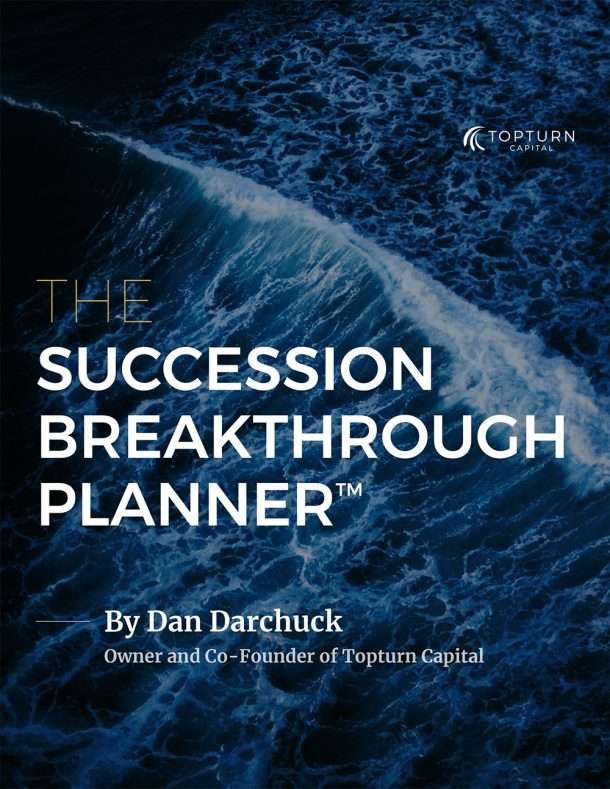Markets are jittery, global headlines read like a slow-motion economic collision, and investors, especially the more conservative ones, are wondering whether they should be acting more defensively or sticking to long-term plans.
But here’s the strange part: amid all of the nervousness, there’s still a surprising amount of expectation.
You can see it in the flows: here and there we’ve seen positive net inflows into equities from retail investors. You can see it in valuation metrics, the S&P 500 is still trading at around 18x forward earnings, which is historically average. People are still buying. They’re still paying for growth. That tells you something about underlying optimism; belief that this will work out in some fashion.
Maybe not smoothly. Maybe not quickly. But not destructively either.
Are We at the Beginning of Something? Or the Middle?
What we’re potentially seeing is the opening salvo of a larger negotiation, not a full-on economic reset. Tariffs, retaliatory rhetoric, and the occasional tweet bomb are part of that now-familiar dance. It’s confrontational, sure…but not entirely unprecedented.
Think back to 2020: the world went into lockdown over COVID, markets cratered, and people were cowering in their homes. But it wasn’t a collapse like the 2008 financial crisis, which was a full-blown systemic breakdown. 2020 had a hard floor, monetary and fiscal responses came quickly. And despite the fear, markets bounced back.
Today doesn’t feel like either 2020 or 2008, but it does feel uncertain.
Tariffs, Trade, and the Bigger Picture
There’s a lot of confusion right now around tariffs, trade wars, and deficits. What do these things really mean? And who actually holds the leverage?
The U.S. imports a lot of goods, but only about 11% of our GDP is tied to imports. Compare that to countries like Canada or Germany where exports make up 35–40% of GDP. In many ways, the U.S. has leverage in a trade negotiation because it is the buyer, not the seller.
So while these moves may look overly aggressive, perhaps what’s happening is more about negotiating leverage than economic suicide.
What Do You Do as an Investor?
The short answer: investing is not about this year. It’s about the next twenty years.
If you’re worried right now, you’re not alone, and you are certainly not wrong to be cautious over the short term.
Having cash set aside for near-term needs (10X monthly expenses – maybe even 20X) is prudent.
“Dry powder” gives you optionality. Hedging may make sense depending on your risk profile.
But…
Trying to time the market is almost impossible. Read any of author Daniel Crosby’s work on market timing and you’ll see it’s incredibly hard to get both the exit and re-entry right. The long-term “equity premium” exists because you’re getting paid for riding out the volatility. Yes, treasury bills are yielding close to 4%. But after taxes and inflation, it’s barely better than breaking even.
Cash helps with stability, but does nothing for growth.
In the words of Benjamin Graham, “In the short run the stock market is a voting machine. But in the long run, it is a weighing machine.” With Graham’s analogy in mind, I would suggest that right now the vote is a bit uncertain.
In our more opportunistic strategy, we are currently:
- Holding about 25% in cash
- Carrying a healthy allocation to gold (7% give or take)
- Holding a decent sized position in TIPS (inflation-protected treasuries)
These are defensive moves not a full retreat.
Final Thoughts: This Isn’t New
Bear markets happen every 5 to 8 years on average, sometimes more frequently, depending on how you define them. And every single time, markets have recovered.
There’s no reason to believe that paradigm has changed.
Even in the middle of trade wars, inflation scares, or debt ceiling standoffs, great companies continue to innovate and create. NVIDIA didn’t stop being an AI leader just because of a bad month in the market. Businesses that are truly valuable don’t stop being valuable when temporary panic sets in.
Panic has never been profitable. But patience? That’s what builds wealth.
If you’re feeling anxious right now, that’s human. But investing has always been about seeing past the noise and positioning yourself to benefit from the recovery that always seems to come, even if it feels a little foggy at the moment.
Stay grounded. Stay diversified. And stay invested.

